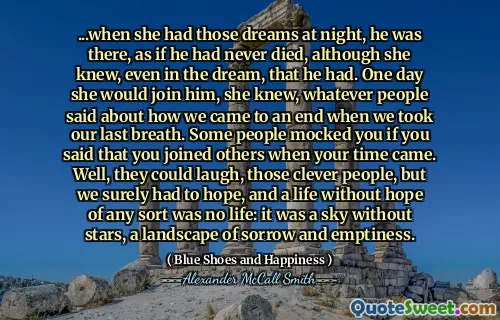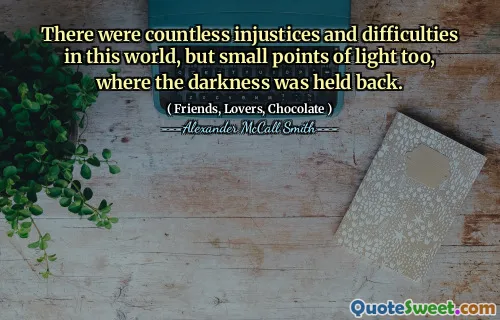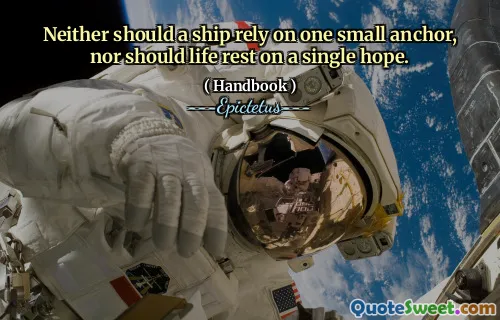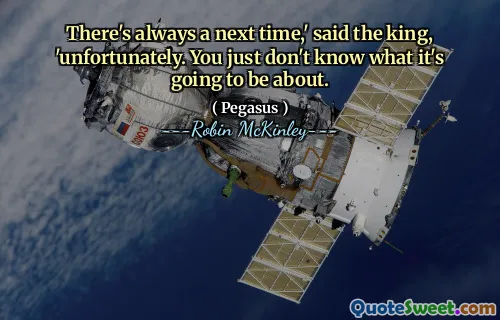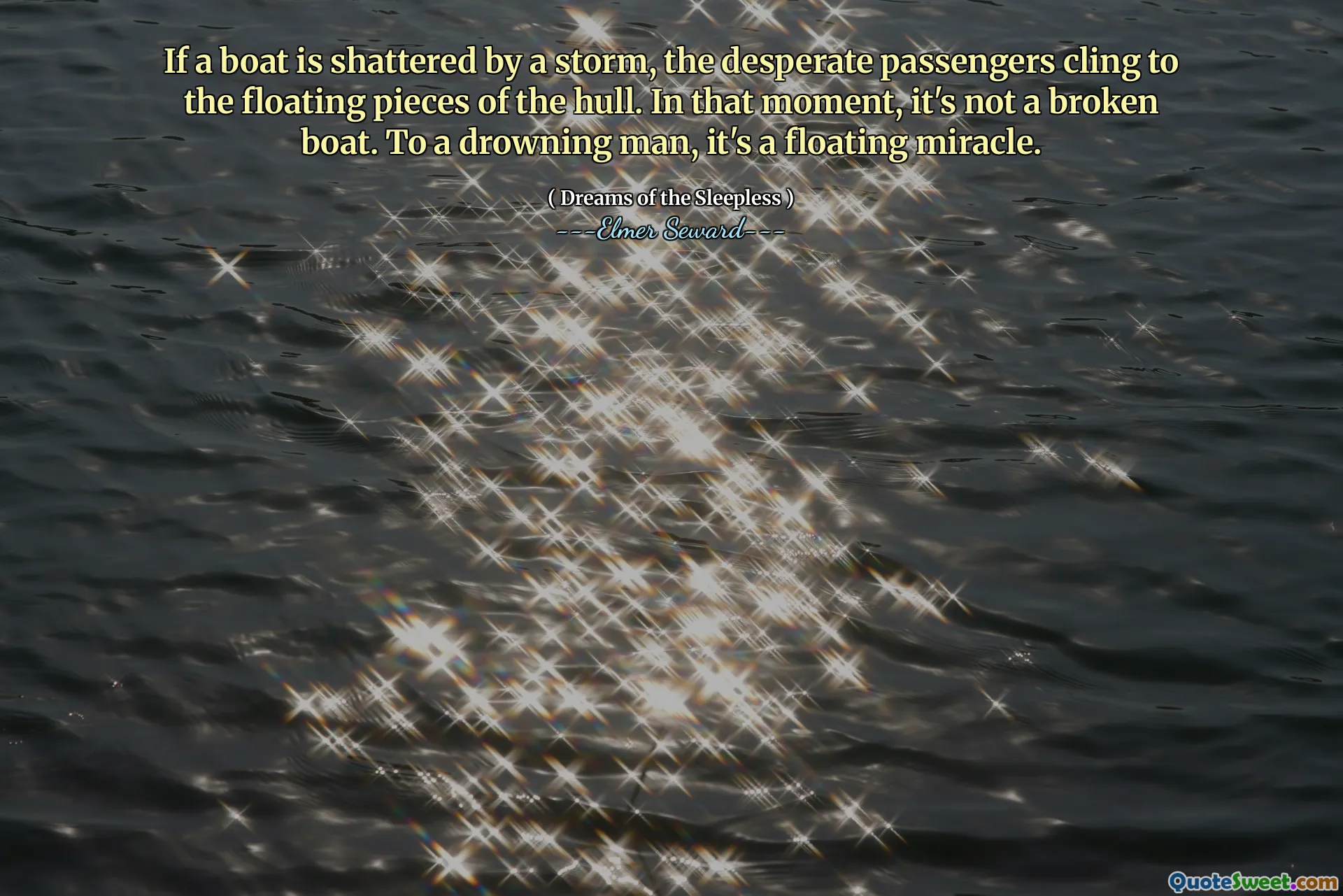
If a boat is shattered by a storm, the desperate passengers cling to the floating pieces of the hull. In that moment, it's not a broken boat. To a drowning man, it's a floating miracle.
This quote vividly illustrates the profound shift in perspective that adversity often brings. When faced with overwhelming circumstances, what was once considered broken or insignificant can transform into a vital source of hope and salvation. The imagery of passengers clinging to the remnants of a shattered boat speaks deeply to the human tendency to focus on survival and the limited resources available in moments of crisis. Instead of perceiving the broken boat as a failure or end, those involved see it as a miracle—something capable of offering salvation, however fragile it may be. This mirrors many life situations where, during challenging times, individuals learn to appreciate what little they have and recognize that resilience often emerges from the midst of chaos. The essence of the quote encourages a mindset of gratitude and adaptability, emphasizing that sometimes, what appears to be a disaster can also be a gift, depending on how it is viewed. It pushes us to think beyond conventional perceptions and reminds us that hope can manifest in the smallest, most unexpected forms. The message resonates universally: in struggles and failures, there can be a hidden miracle, a glimmer of possibility that sustains us until circumstances improve. Such a perspective can inspire courage, patience, and a renewed sense of purpose when navigating life's storms. It underscores the transformative power of attitude and perception in shaping our experience, especially in the face of adversity.


